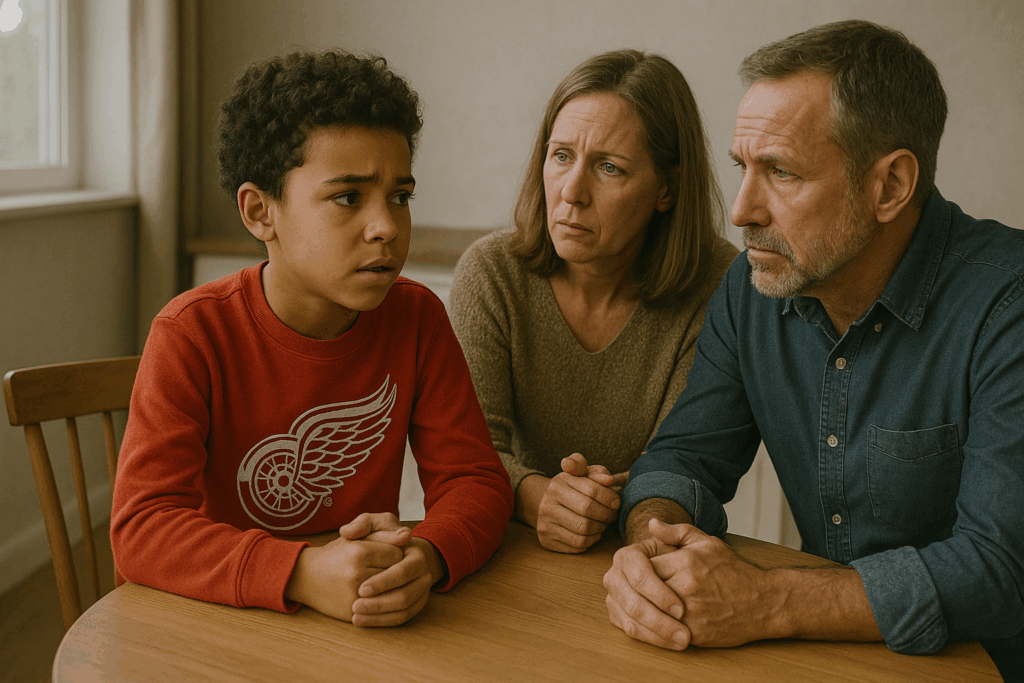
Foster Care and Mental Health, Part 2: Reactive Attachment and Borderline Personality Disorders
Welcome back. In Part 1 of this series, we explored the devastating emotional impact that foster care can have on children—particularly the widespread prevalence of depression and anxiety disorders following removal from their homes.
Now we turn to two additional, and often misunderstood, conditions that also disproportionately affect children in the foster care system: Reactive Attachment Disorder (RAD) and Borderline Personality Disorder (BPD). While less common than depression and anxiety, both are closely tied to early trauma, disrupted caregiving, and unstable environments—making foster youth especially vulnerable.
According to Preserving Families, Securing Futures (SAFY), approximately 80% of the 400,000+ children in foster care nationwide suffer from a significant mental health issue. That’s four to five times the rate seen in the general child population.
Reactive Attachment Disorder (RAD)
Reactive Attachment Disorder is a rare but serious condition that often develops in infants or toddlers who have been severely neglected or experienced frequent disruptions in caregiving—such as bouncing from home to home in the foster care system.
Children with RAD often struggle to form healthy, lasting emotional bonds with caregivers or peers, which can significantly affect their long-term development and social functioning.
Common symptoms of RAD include:
- An inability to trust or form emotional connections
- Avoidance of physical contact and affection
- Anger, irritability, and explosive outbursts
- A constant need to control their environment
- Deep-seated fear of closeness or abandonment
- Poor impulse control and limited empathy
- A generally underdeveloped conscience
These children are not “bad kids”—they are hurt kids whose trauma was never fully addressed, often exacerbated by a child welfare system that failed to prioritize stability and connection.
Borderline Personality Disorder (BPD)
Borderline Personality Disorder is a serious mental health condition marked by extreme emotional dysregulation, unstable relationships, and impulsive behaviors. While BPD is often diagnosed in adolescence or early adulthood, early trauma—especially abandonment or abuse—significantly increases the risk.
Foster youth, especially those placed in care after abuse or neglect, are more likely to develop BPD due to the intense and repeated emotional stress they’ve endured.
Common symptoms of BPD include:
- Unstable self-image and distorted sense of identity
- Intense mood swings and emotional sensitivity
- Impulsive or risky behaviors (e.g., substance use, reckless driving)
- Frantic efforts to avoid real or imagined abandonment
- Unstable and chaotic personal relationships
- Episodes of intense anger, depression, or anxiety
- Self-harming behaviors, including suicidal ideation or attempts
BPD often affects a person’s ability to hold jobs, maintain relationships, or regulate their emotions—even well into adulthood.
Keeping Families Together Protects Children’s Mental Health
At The Kronzek Firm, we firmly believe that children do better when they are kept safely with their families, whenever possible. The emotional toll of being removed from their home—especially when alternatives could have been pursued—is often more damaging than the alleged abuse or neglect that triggered the investigation.
Too often, CPS overreacts, removing children prematurely or without sufficient evidence, setting off a chain reaction that can affect a child for life.
Facing a CPS Investigation? You Need to Act Fast.
If Child Protective Services is threatening to remove your children, or if you’ve been accused of abuse or neglect, you need to take the situation seriously—and take action immediately. These cases move fast, and your opportunity to prevent foster care placement may be short.
Our experienced child abuse and neglect defense attorneys have decades of experience representing parents across Michigan. We understand both the criminal and family court processes, and we know how to push back when CPS oversteps.
📞 Call us right now at (866) 766-5245 for a free, confidential consultation. We are available 24/7, including nights, weekends, and holidays.
Don’t wait until it’s too late. Protect your children, your rights, and your family’s future—starting today.
